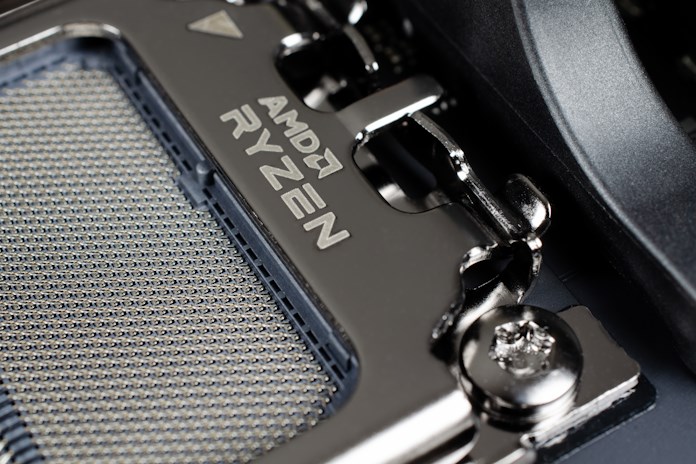If you’re in the market for a gaming CPU that provides groundbreaking, revolutionary performance, you’re spoiled for options in 2025. The AMD Ryzen 7 9800X3D blew minds when it launched back in late 2024 with the chart-topping performance it offered through AMD 3D V-Cache Technology. Maybe you looked at that beast of a chip and thought to yourself, “yeah, but what if it had twice as many cores?” In that case, you got your wish in 2025 with the AMD Ryzen 9 9950X3D, which doubles the core count while managing to increase gaming performance at the same time.
But perhaps you’re perusing the prices of these premium processors and pondering if you can pinch enough pennies to purchase one. Before you compromise on other parts of your new rig to make space for one of these top-shelf chips, take some time to consider other options. Not every PC gamer needs the best CPU. Depending on your budget and other components in your build, a midrange CPU might offer you similar gaming performance for less money.
This article is part of our “Back to Basics” series designed to help PC building newcomers make informed decisions about component purchases and assemble their new PC with confidence. Click here to browse the entire collection of articles.
What your CPU and GPU actually do in a gaming build
To figure out which CPU will give you the most bang for your buck, you’ll need to understand the relative roles of your CPU and graphics card. When you’re playing a game, both of these processors work to create the experience, but in different ways.
The CPU handles calculations about the state of the game world — stuff like the physics of objects bouncing around and the decisions made by NPCs standing in the street. The CPU also plays a role in delivering game assets like textures from long-term storage on your hard drive to the graphics card. Your graphics card then takes all that information and uses it to actually draw the frames that you see on your screen.
Depending on the graphical detail and the number of pixels in the image, that can take a lot of work, making your graphics card the most important component in your PC when it comes to determining your FPS. But it doesn’t do that work alone. If your CPU can’t keep up with its end of things, your graphics card won’t be able to push out frames as efficiently as it could otherwise, and you won’t be getting the full performance that you paid for when you bought your graphics card.
All you need is a CPU that’s “fast enough”
Your number one goal when shopping for a CPU for a gaming PC, then, is to find a chip that’s fast enough to keep up with your GPU. Any faster than that, and your CPU won’t have as much opportunity to show off what it can do.
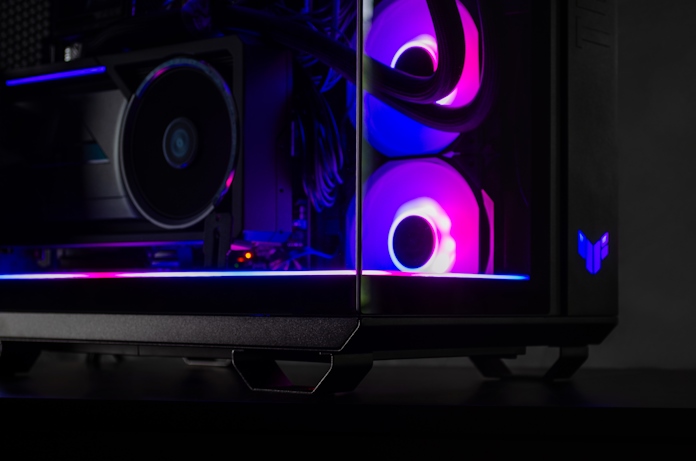
How fast is fast enough? Well, if you’re planning a build based on the most powerful graphics card on the market today, then you should pair it with the best gaming CPU that you can afford. Top-end cards like the ROG Astral GeForce RTX 5090 are so astonishingly powerful that they’re capable of taking advantage of every bit of performance offered by today’s CPUs. That’s a key reason why CPU reviewers almost always run their tests with ultra-high-end GPUs: they’re trying to find out the maximum performance a CPU is capable of in the most ideal scenario.
What happens when you pair one of the best gaming CPUs with an entry-level or even mainstream graphics card? Nothing bad, but you’ll end up with an odd scenario where your CPU will be able to feed information to your graphics card faster than the GPU can actually use that data to draw new frames. In most games, that’ll mean that your new high-end CPU will only be able to offer a level of performance comparable to what you’d get with a more affordable model.
It’d be a bit like heavily modding your standard sedan to accommodate a Formula One engine, only to use it for your trips to the grocery store. Sure, such a vehicle could drive 25 miles per hour through your local residential zone, and it would impress the neighbors when you pop the hood. But there’d be no tangible value in spending that much money for top-end speed and acceleration that you’re not actually able to use.
Getting a top-tier graphics card? Grab a top-tier CPU, too
With this context in mind about the relative contributions of CPUs and GPUs in a gaming build, we’re able to get down to brass tacks. From here out, we’ll focus on straightforward, actionable advice for putting together your parts list for a gaming PC.
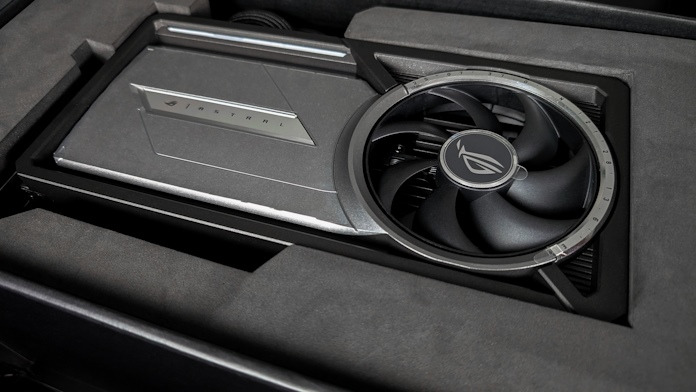
Let’s start with builders unwilling to spare any expense for their new gaming PC. If you’re building a behemoth of a gaming rig with a chart-topping graphics card, then don’t skimp on your CPU. It’d be a crying shame to bottleneck the performance of a card like the ROG Astral GeForce RTX 5090 by pairing it with a CPU that can’t keep up. Other cards on the upper end of the performance scale, like a TUF Gaming GeForce RTX 5080, also gain considerable benefit from being paired with premium CPUs. Pair one of these cards with a top-tier chip like an AMD Ryzen 9 9950X3D or an AMD Ryzen 7 9800X3D, and you won’t regret your investment.
On the flip side, you won’t see as much of a performance uplift from one of the best CPUs for gaming if you pair it with a more mainstream video card. If you’re planning to purchase an NVIDIA GeForce RTX 5070 or AMD Radeon RX 9070 XT, for example, a mainstream CPU like an AMD Ryzen 5 9600X will offer comparable, if not identical, performance to the top-of-the-line alternatives, all while saving you enough money to potentially purchase a more powerful GPU.
Let your monitor’s native resolution be your guide
Another factor that comes into play with assessing the value of a premium CPU is the native resolution of your gaming monitor. The rule of thumb is that CPU performance matters more at lower resolutions like Full HD, but not as much at higher resolutions like 1440p or 4K. That’s why CPU reviews focus first and foremost on Full HD performance: at this resolution, the difference between competing CPUs is easy to see.
So let’s say you’re building a tournament-grade esports rig to feed frames to a gaming monitor like the ROG Strix Ace XG248QSG, which pairs a Full HD resolution with a jaw-dropping 610Hz (OC) refresh rate. One of the best gaming CPUs will help make sure that you’re able to take advantage of that sky-high refresh rate more often.
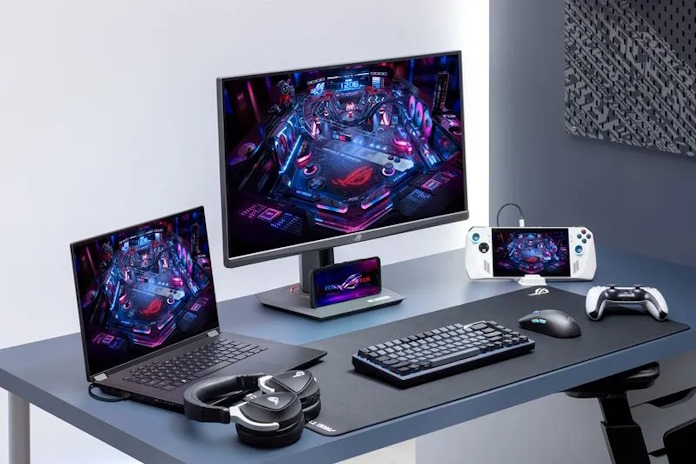
Full HD gaming monitors were the standard for a very long time, but these days many gamers opt for higher resolution 1440p (2560×1440) monitors instead. As you bump up your playing resolution, you put more weight on the shoulders of your graphics card than your processor. If your main gaming monitor is a mainstream 1440p model like the very affordable ROG Strix XG27ACS, you might get the most value out of a midrange CPU and GPU.
4K gaming is a bit of an odd duck in this regard. On the one hand, when you’re playing a demanding title at 4K, your graphics card is doing almost all the heavy lifting. In this scenario, you aren’t likely to discern as much of a difference between a midrange CPU and a top-tier CPU from the same generation of chips. But at the same time, it takes a very potent graphics card to handle a visual feast like Cyberpunk 2077 or Alan Wake II at 4K. With that kind of investment into your graphics card, you’ll be happier in the long run if you pair it with a very capable CPU.
Some games love CPU performance more than others
One thing to pay attention to as you’re browsing CPU performance reviews is what we call CPU scaling. Some games get more of an uplift than others with a more-powerful CPU. Why? For one, not all games are equally optimized to take full advantage of the high core count of a premium CPU. Others make such big demands on your graphics card that CPU resources aren’t a big factor when it comes to your FPS. A few in-game settings that you select can have an impact here, too. When you play with ray tracing enabled, your CPU and GPU both have more work to do, so you’ll want extra power on both ends.
So if there’s a specific game that you know will consume most of your play time with your new gaming PC, try to find a review that shows you how much of a difference there actually is between the different processor options. If it’s a game like Baldur’s Gate III that loves a potent CPU, your frame rate will jump up even when upgrading from a standard AMD Ryzen 9000 Series CPU to an AMD Ryzen 9000 Series CPU with AMD 3D V-Cache Technology. If you’re building a PC for this game and you’re likely to spend years exploring its never-ending trove of fan-made mods, then by all means invest a little more in your CPU. You’ll absolutely see the benefit, even with a midrange graphics card.
On the other hand, if the CPU scaling for your favorite game is more modest, don’t be shy about diverting some of your CPU budget over to your GPU instead.
If you’re building a mixed-use PC, consider a higher-end CPU
Gaming workloads typically rely on GPU resources rather than CPU resources, but that’s not the case with everything that you might use your PC for. If your new PC will take on content creation, enthusiast-grade productivity, or AI workflows in addition to serving as your gaming rig, then you’d be wise to equip it with a potent multicore CPU.
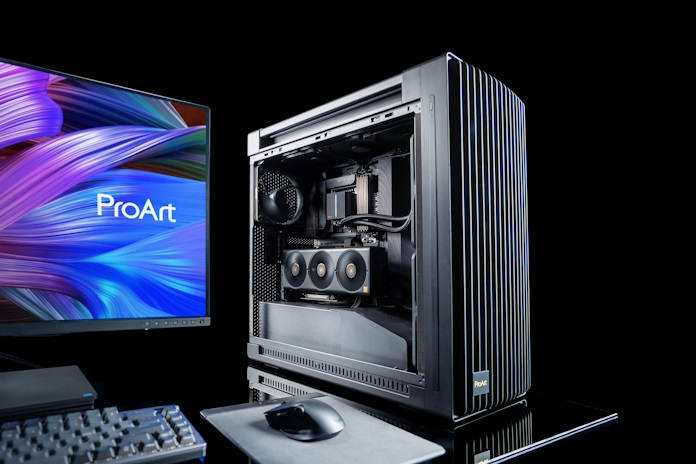
This is especially true if you’ll be using your new PC as part of your professional work. Time is money, and if an AMD Ryzen 9 9950X3D can shave precious minutes off your workflows, it’ll more than pay for itself over the course of its lifespan.
Remember that upgrading down the road is a real possibility
One of the primary reasons why people build their own gaming PCs rather than purchase a console or laptop is upgradeability. With a desktop PC, it’s really not that hard to swap out a CPU.
So if you’re on the fence, trying to figure out whether you should buy the best CPU for gaming or a more wallet-friendly alternative, maybe the best move right now is to go for the more affordable option. For example, the Intel Core Ultra 5 Processor 245K installs into the same Z890 and B860 motherboards as the top-of-the-line Intel Core Ultra 9 Processor 285K. If you reach a point where you want to upgrade from the mainstream chip, you can swap it out for the higher-end model and recoup some of your cash on the used hardware market, all without changing anything else in your build.
Long-term value might tip the scales for you
Over the years, certain PC components have become legendary for just how many years of service they offered. If you bought a ROG Strix GeForce RTX 2080 Ti back when it launched in 2018, you were well-set-up for years afterward. That card debuted as the top-end model in its product stack, but arguably claimed the crown for best value, too. Many PC builders have similar nostalgia for the AMD Ryzen 7 5800X3D, a CPU which continues to offer credible gaming performance to this day.
If you want to buy a CPU today that you won’t have to even think about replacing for several years, then don’t be shy about getting one of the best gaming CPUs on the market. It’s just so convenient. Sure, new generations of chips will come along, potentially dethroning your CPU as the new king of the hill. But they’re unlikely to make you regret your purchase today.
Is one of the best CPUs for gaming right for your next build?
We’re not here to dissuade you from buying one of the best gaming CPUs available. If you’re building a high-end gaming machine in 2025, you shouldn’t be shy about pairing an AMD Ryzen 7 9800X3D or AMD Ryzen 9 9950X3D with an equally potent X870E motherboard. Maybe you just want the bragging rights that come with owning the best CPU around. That’s okay, too.

We just don’t want you to feel like you have to make that kind of investment. More affordable options are out there, and they offer more bang for your buck in entry-level and mainstream gaming PCs. For your mainstream 1440p gaming rig, you should be very tempted by a value-oriented B850 motherboard and the AMD Ryzen 5 9600X. Similarly, the Intel Core UItra 5 Processor 245K regularly shows up these days in attractive combo deals with Z890 motherboards.
Diving into PC gaming in 2025 doesn’t require the services of the most expensive components on the market. Those pieces of hardware have their place in the PCs of power users, enthusiasts, and gamers experiencing the fun of a no-holds-barred gaming machine. But if your PC building budget doesn’t stretch that far, don’t worry. You can still get tremendous value out of more mainstream hardware.

